Scotland Road: Pubs of Liverpool thoroughfare face last orders
- Published
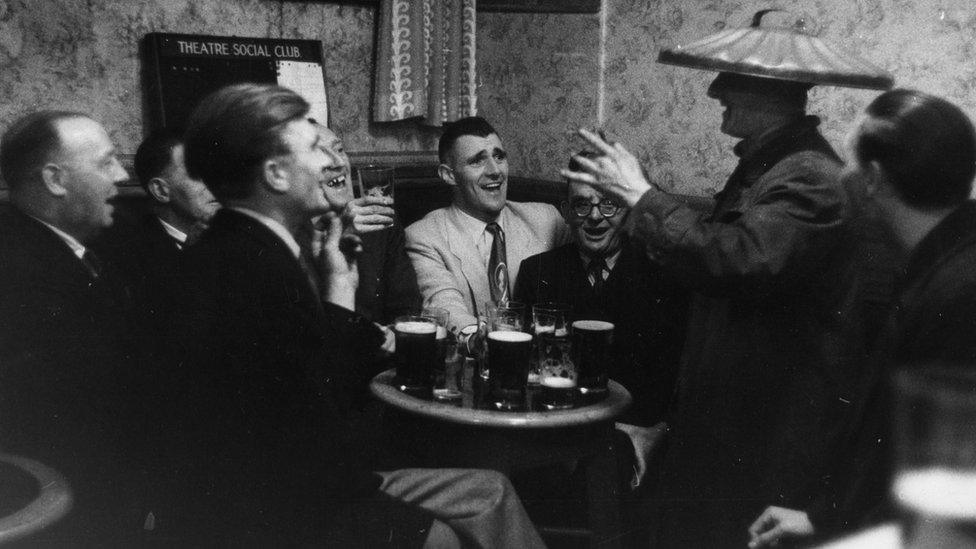
The pubs along Scotland Road were once packed with people enjoying a night out
At its peak, the area around Liverpool's Scotland Road was home to more than 200 pubs, but last orders could soon be called on what was once the beating heart of the city.
The Throstles Nest, which opened in 1804, is the last remaining pub on what is affectionately known locally as "Scottie Road" and has recently been put up for sale.
Now part of the A59, the road runs for about a mile through Vauxhall and into the city centre.
It took its name from the original stagecoach route it was once part of and remains one of the city's busiest thoroughfares.
However, the area around it has been in steady decline since the 1960s, when rehousing and road development schemes started a population decline that saw residency fall by 67% in 20 years.
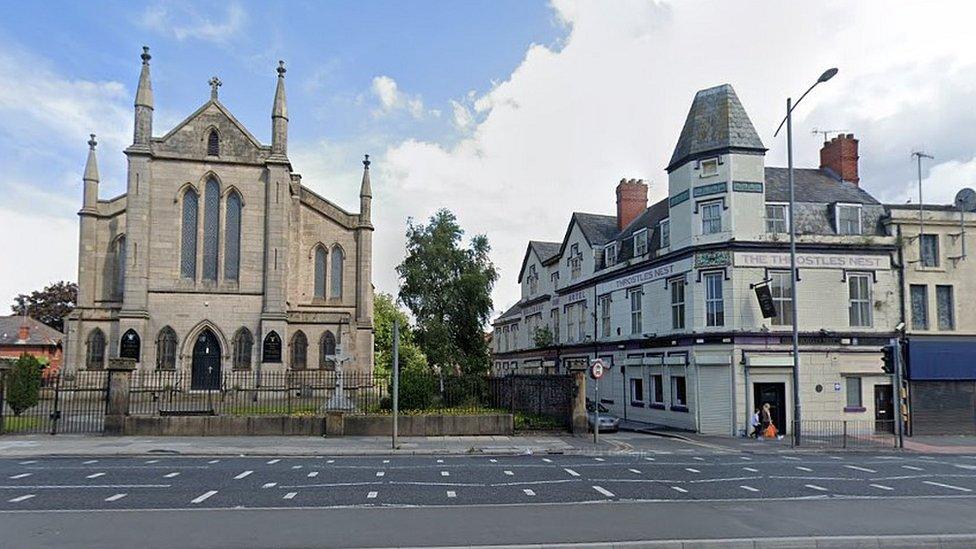
The Throstles Nest stands alongside the Church of St Anthony's and both have served the local population since the 19th Century
Previously surrounded by rows upon rows of tenements, ice cream parlours, tailors, grocers, pubs and cinemas and a stone's throw from the childhood home of one of the city's most famous daughters, Cilla Black, the Throstles Nest is now a lone outpost from a bygone era.
On the night Liverpool faced Rangers in the Champions League, the sort of football match that would have previously seen thronging fans pack into the pub, just three people were in its saloon bar.
Landlord Kevin McMullen, who has owned the pub for 40 years, has vivid memories of its heyday.
"You wouldn't be able to see the door for people," the 78-year-old said.
Referencing the bustling Barcelona street of bars, he said the road had been like "a poor man's Las Ramblas".
"Those who'd been moved out to Norris Green and Kirkby would all walk down, it was jampacked," he said, adding that anyone who attempted a crawl of the road's many pubs would "always fail miserably [as] they couldn't get through them all".
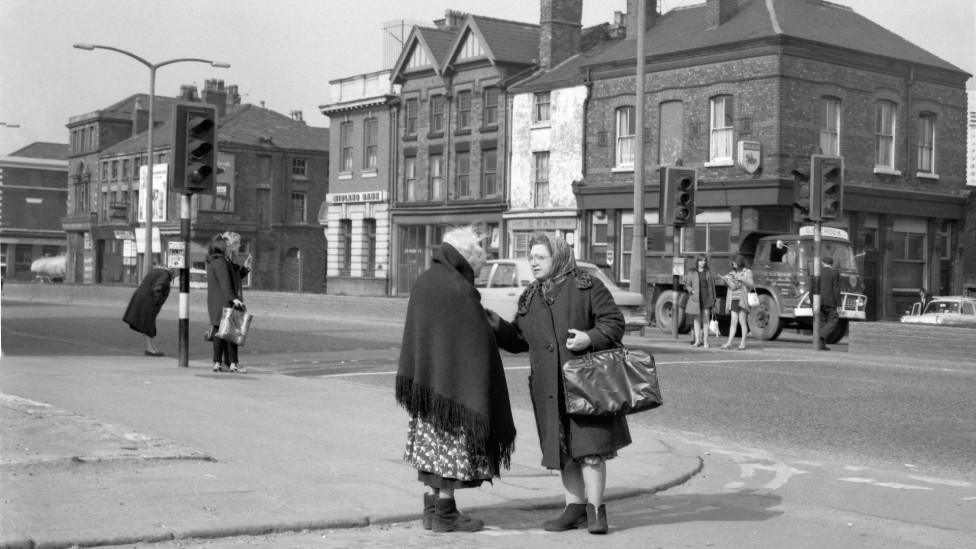
The road was once home to tenements, ice cream parlours, tailors, grocers, pubs and cinemas
Sitting at a table, born and bred "Scottie roader" Kevin said he had seen many changes along the road.
"I was one of ten, we grew up selling flowers and whatnot pub to pub," he said.
"It was one of the friendliest roads you'd ever see.
"It could be tough at times, but everyone looked out for each other."
Retired railway worker Les Johnson, 70, who now lives in Wirral, used to be a regular in the Throstles Nest.
"There was everything up Scottie Road; weddings, funerals, birthdays", he said.
"It was a bit of a starting place for a lot of people, you'd go to a few pubs there and you could carry on to the clubs in town."
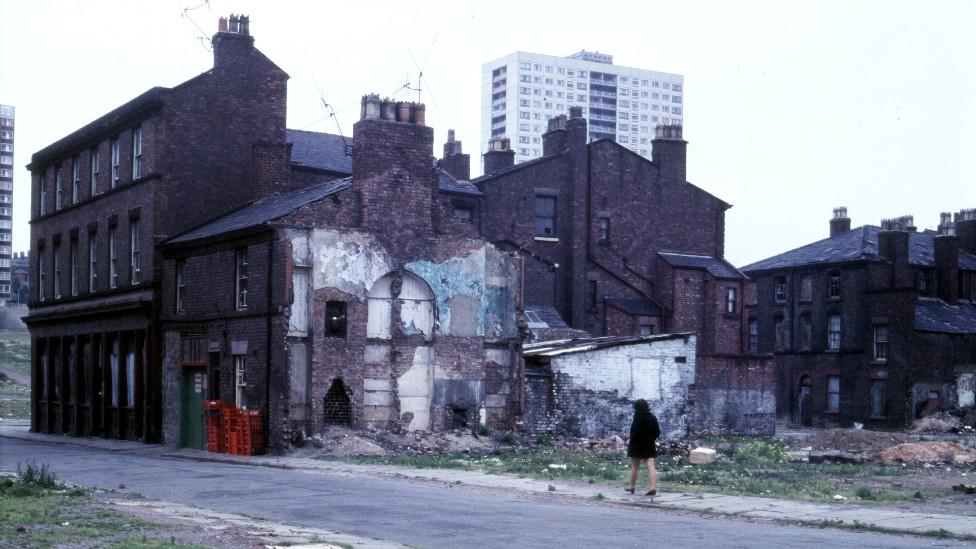
Peter Leeson documented the decline of the area around Scotland Road in a 1970 film, titled Us and Them
Mr McMullen said changes in drinking cultures, the smoking ban and Covid-19 was to blame for the closures, but long before the pandemic, the seeds of Scotland Road's decline were being sown.
The area, which had such a high number of Irish immigrants arrive in the 19th Century that it was the only place outside of Ireland to ever have been represented by a Irish Nationalist Party MP, had 17 Roman Catholic parishes at its height.
Now, it has two.
The Right Reverend Tom Williams, Liverpool Auxiliary Bishop, was born just off Scotland Road and was once the parish priest at the Church of St Antony's, which neighbours the Throstles Nest.
"I knew the area by its cinemas, pubs and churches, all of those have gone," he said.
"Things started closing around 1962, when I first went to college.
"Each time I came back, something else had gone."

Scotland Road
Scotland Road was built in the 18th Century as a new route to the north, one of two original turnpike roads out of Liverpool
It became the focal point of Irish immigration and in 1847 and 1848, 300,000 Irish people came across a 12-month period
As well as becoming a magnet for those wanting to drink, the road saw many clashes between Protestant and Roman Catholic communities living locally, which continued until the slum clearances of the 1960s

Peter Leeson, who quit Liverpool City Council's planning department in the 1960s after becoming disillusioned with the direction it was taking, said the impact of "horrifying" rehousing and road development schemes had a huge impact on the north of the city.
The 82-year-old said the area's "tightly-knit community" had been "torn apart" by planning decisions.
"Supposed 'slum clearances' saw families and friends being split up and the area was turned into piles of bricks and rubble," he said.
He documented the decline in a 1970 film, titled Us and Them, which railed against the city planners that earmarked large areas for demolition.
In it, he argued that the construction of the Wallasey Tunnel, which cleared large sections of Scotland Road, was "the final knockout blow".
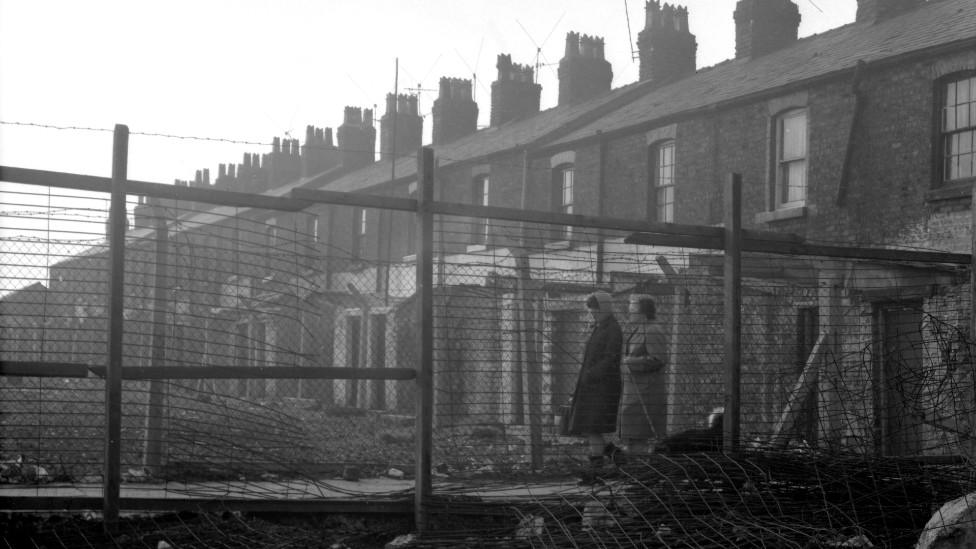
A combination of rehousing and road development schemes saw the area around Scotland Road fall into decline
Liverpool City Council's Deputy Mayor Jane Corbett, who represents the area on the authority, said her predecessors "didn't get everything right" when it came to town planning.
"Big decisions were made back in the '60s and '70s that didn't involve community," she said.
"It wasn't a coherent strong neighbourhood plan.
"For planning and housing policies to work, they have to work collaboratively with the community.
"But there are strong communities either side of Scotland Road that will always achieve much, sometimes against appalling odds."
She added that the sale of the pub was a "sad moment", as it was "a key landmark".
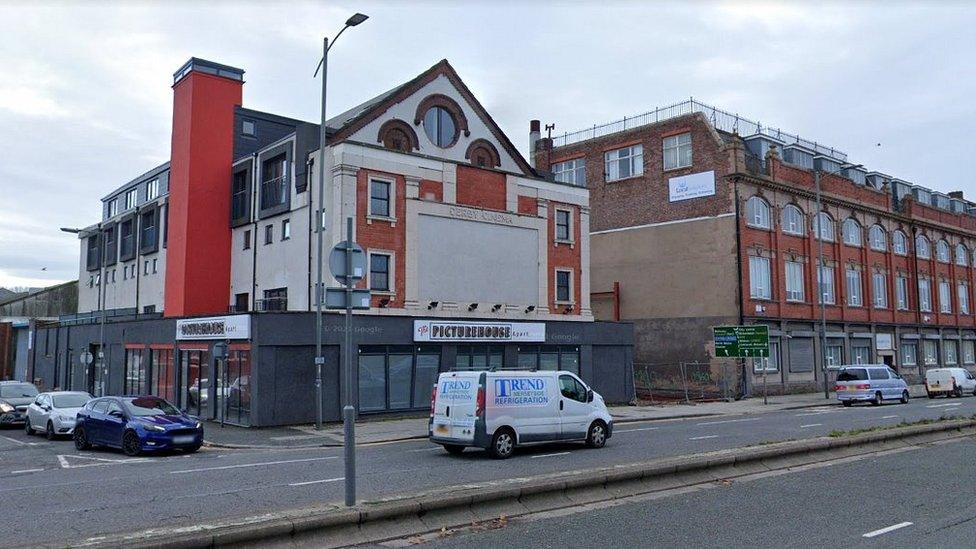
Redevelopment and regeneration projects have seen old sites, such as the Derby Cinema, given a new lease of life
Like the deputy mayor, Auxiliary Bishop Williams said he also remained optimistic about the area's future.
"With every ending is a new beginning," he said.
"The new Everton ground [at Bramley Moore Dock] will hopefully make a difference to that end of the city."
Back in The Throstles Nest though, Mr McMullen said he just hoped he was not overseeing the end of an era.
"Hopefully, a younger man will have a go," he said.
"I would be very sad to see it close for good as a pub."

Why not follow BBC North West on Facebook, external, Twitter, external and Instagram, external? You can also send story ideas to northwest.newsonline@bbc.co.uk, external